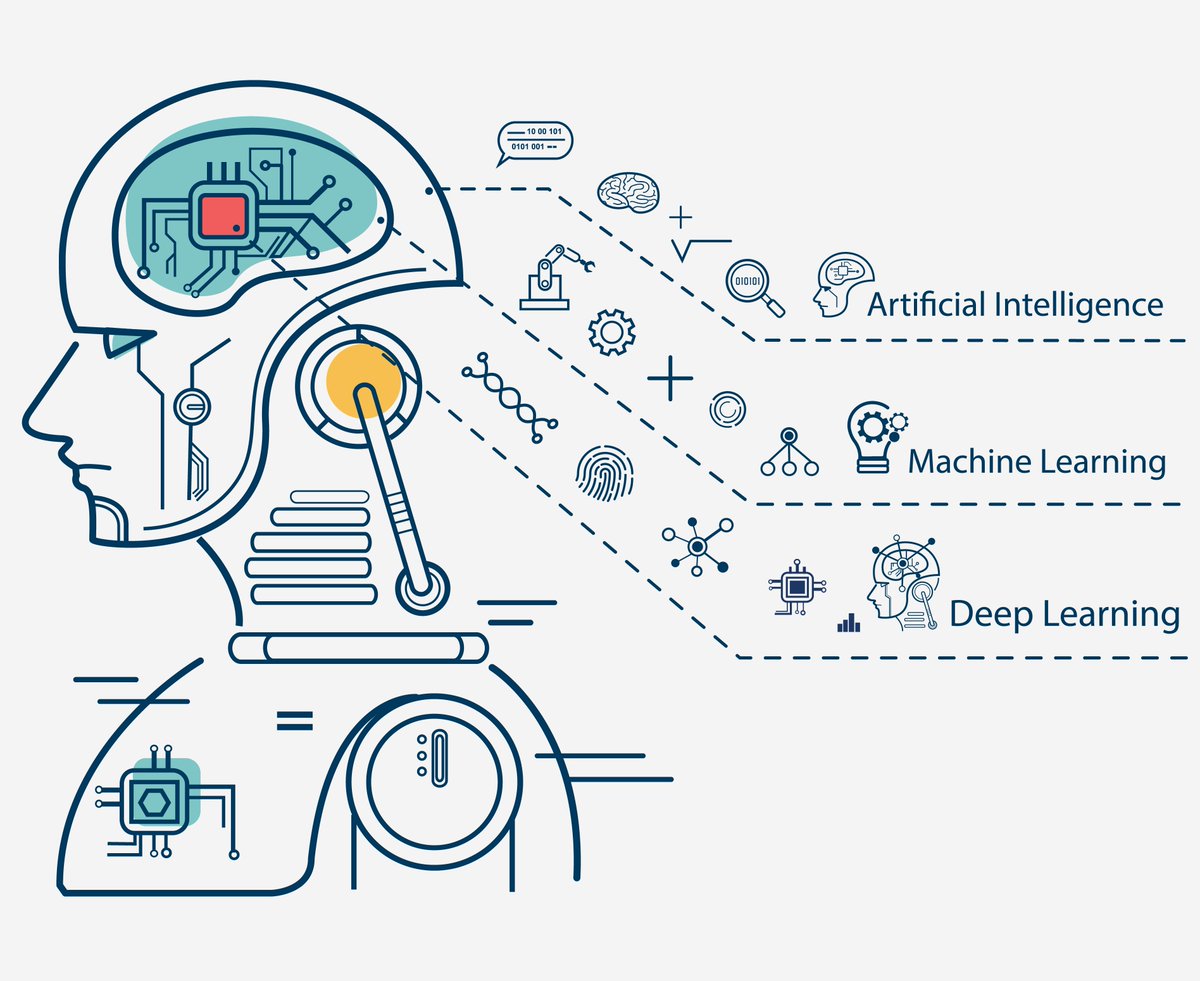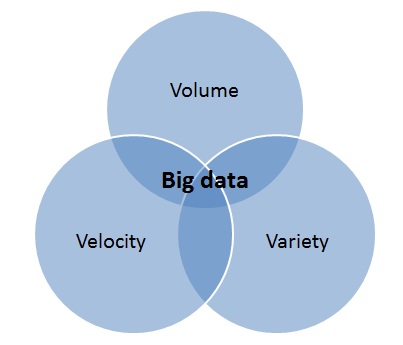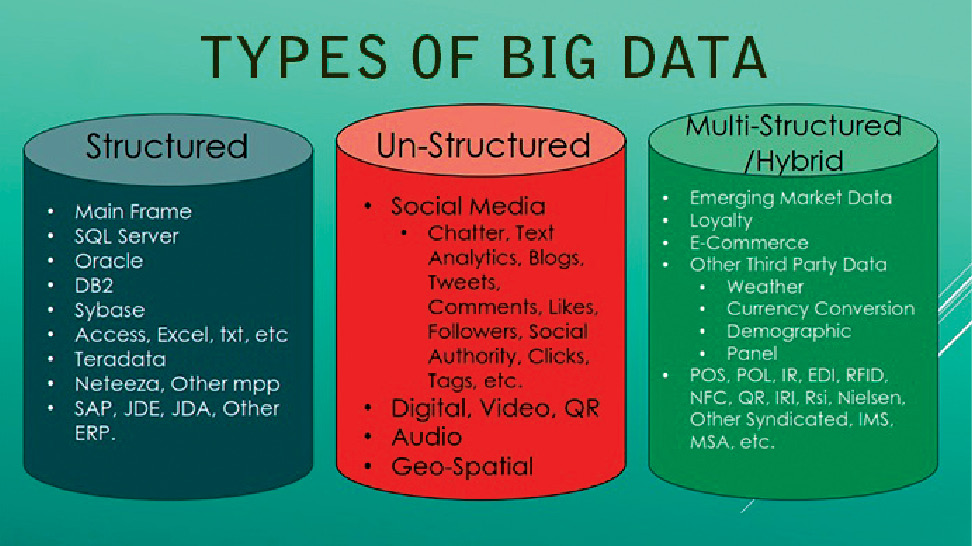Introduction
Research has always played a huge role in the business (and the advancement of the world in general). It is inherent in humans to develop a hunger for information and leverage that curiosity to serve their interests and those of other people.
In this light, numerous tools and methods have been developed to make the process easier. These ways cover observation, data collection, analysis, and more. The more information you get, though, the more difficult it will be to handle; and eventually, it will go over human capacity.
That’s what we love about big data. It is the answer to all these challenges.
What Is Big Data?
Big data is a collective term that refers to the collection, analysis, and management of massive amounts of data collected through digital use. How massive? Let’s just say that data isn’t considered “big” data unless it can’t be handled by a single machine.
This technology is still currently being further developed and refined, true, but Artificial Intelligence (AI) plays an essential role in making it possible. They share a mutualistic relationship with each other. Big data needs AI to give its information meaning, while AI needs big data to expand its intelligence.

This symbiosis is applicable wherever you wish to use big dataーincluding digital marketing services.
How Big Data Works
There are three elements that make up big data. The industry calls it the “3Vs”.

These are:
- Volume: As mentioned, big data is able to store and process massive amounts of information.
- Velocity: It is able to do so at an impressive speed.
- Variety: Finally, big data doesn’t discriminate against the type of data it receives. It can process information regardless of its form or medium such as numbers, text, and images just to name a few.
The abilities that big data can provide through these elements would depend on its application. For those who are wondering how big data is used in marketing, it works by collecting digital information from a source you prefer. This includes your website information, online visitor activity, and history, and business transactions. It will then analyze these data to understand the content that works and doesn’t work (and why), which products sell or not, how successful (or unsuccessful) your digital marketing campaigns are, and even provide you with data-backed proposals or actionable steps.
There are also other online platforms that assist digital marketing efforts that also utilize big data. For instance, we use lead distribution software that has the capacity to collect information on various leads and decide how to distribute them accordingly to the best teams that should handle them.
Big Data’s Role in Sales and Marketing
Big data is still relatively new. As mentioned, it is still undergoing a lot of development. What a lot of us don’t realize, though, is how much this technology is already being utilized especially by international companies.
Have you ever felt as if your favorite company knows you a little too well? That’s thanks to big data.
It is responsible for remembering your online history and figuring out your preferences. Your information, together with other consumers’ will then…
- Help companies determine which of their products really sell. There is no need for an extended trial-and-error phase anymore. You can zoom in on the products and services that your target demographic appreciates and focus your sales and marketing efforts there. It will also spare you from filling up your warehouse with low-demand inventory.
- Provides up-and-coming brands with the confidence they need. Confidence is probably not a big deal for companies who have established excellent brand awareness already, but that’s not the case for up-and-coming brands. Fortunately, the information provided by big data gives you an informed projection on whether your new products and services will click or not. It will also help support your hunches and ideas, even those that have never been tried before.
- Boost sales through optimizing prices. There are a lot of strategies that you can use in order to determine the right balance of pricing policy on your items. A common formula is calculating the total production cost plus a 10% profit. Unfortunately, these formulas don’t always work anymore, especially online where the competition is cutthroat. Don’t worry, big data will help you optimize your prices not just by learning how much your consumers are willing to spend by analyzing their spending habits, but also through considering other related factors such as your competitor’s price, the demand of the product, the state of the industry, and more.
- Assists in increasing the success rate of your marketing campaigns. There are a lot of tools that can help you “guarantee” the success of your marketing efforts, but you can’t trust them to be as intuitive and reliable as big data marketing. Using big data in marketing can point out the elements that make successful campaigns work and the aspects that doomed the bad ones to failure. It will help you learn from your competitor’s mistakes so you won’t have to go through them anymore.
Big data marketing analytics help you make more informed decisions because it will leave no rock unturned. It literally paints you the complete picture.
3 Types of Big Data for Marketers
Here’s a question we frequently get from our readers: what kind of information does big data marketing analytics need? Big data can collect anything you want it to as long as it can access and collect them.

This information can generally be categorized into two main types:
- Structured Data. This is the information that already comes with its own parameters. It is already pre-organized and only needs to be recorded and analyzed. For instance, those who are going to integrate a big data platform into an existing lead distribution service will enjoy the benefits of added speed and more detailed analysis. That’s because every bit of information already comes with a label such as name, age, country, and so on.
- Unstructured Data. On the other hand, unstructured data are information that still needs to be labeled and organized accordingly. This mostly happens when the data being read comes from different sources or mediums. A good example of this is using big data to analyze user-generated content. The information will come from a variety of places (review sites, social media, business listings) and in different mediums (texts, images, short video clips, chat responses).
Both structured and unstructured data can further be categorized into further subtypes, although the difference between structured and unstructured data. These come in a variety of forms as well. There are three particular types of information, though, that you need to prioritize as a marketing professional:
Customer Data
This is the type of information that helps marketers get to know their clients better. We are talking about names, email addresses, age, location, online activity, and purchase history. It is also a good idea to go as far as gathering information that will determine their personalities, such as their social media activity, survey answers, and more.
Financial Data
This is the type of information that helps marketers analyze the numbers related to their brand. We are talking about sales and marketing numbers (both yours and your competitors), campaign costs, revenue made that are related to any campaign launched, and more.
Operational Data
Finally, you also need to gather operational data that are information related to the business processes involved in your sales and marketing efforts such as logistics, online platforms, tools like a check stub maker used, tracking software enhancing employee performance, employee performance, customer relationship management systems, and more.
These are certainly not the only types of information that you can gather, manage, and analyze. We simply seek to give you options to prioritize, especially if you have limited time and resources to spare.
The Benefits of Using Big Data
Should you finally decide to use big data for marketing then here are some of the benefits that you can expect to enjoy in return:
- Improved customer experience. As you get to know more about your target demographic, the better experience you’ll be able to provide. For instance, social media platforms use big data and AI to analyze user preferences and only show advertisements that are relevant to them.
In this way, they are not only boosting the efficiency of their ads but they’re also sparing their users from ads that don’t add value to their lives making their stay on the platform more enjoyable.
Another fine example is how online stores remember the favorite products and services that their loyal patrons purchase. In this way, their customers won’t need to explore the shop anymore to find them. It saves time and increases sales.
- Increased brand reputation and awareness. Not only that, but big data also supports marketing efforts. After all, brand reputation and recognition increase with a better customer experience. It can even help in boosting user-generated content through positive reviews online. Recent statistics point out that 91% of adult consumers trust online reviews almost as much as a personal recommendation coming from a friend or family.
- Better customer acquisition. Another reason why big data is important is that it streamlines your customer acquisition efforts. Since you already know how your customers think and feel, then you’ll also know how to beeline directly to the call-to-action that will directly appeal to them.
- Save significantly. Speaking of beelining, you can only imagine how much sales and marketing costs you are going to save if you take the guessing game out of the picture. What’s more, is that as the demand for big data marketing analytics increases, the more accessible it becomes.
These are certainly not the only benefits that data-driven marketing can provide. Big data marketing analytics is something that keeps on giving.
Challenges of Big Data Marketing
Of course, as with any technology, it is still not perfect no matter how great it is. Big data marketing has issues of its own. We’re not surprised. It is normal for people to fear things that they don’t fully understand yet, especially if it’s a technology that offers great potential. Any technology is neutral until it falls into the hands of its users.
Hence, here are just some of the consequences of using big data that you should watch out for:
- It opens the possibility of the misuse of personal information. It doesn’t matter whether you are an average consumer, a marketer, or a business owner. No one enjoys having their personal information sold to other people without one’s consent, and more so if it is used against them. Utilizing a robust consent management platform becomes crucial in safeguarding individuals’ privacy rights amidst the vast data landscape.
There have been reports of data managers selling collected consumer digital information to companies and worse, certain organizations that seek to profile and discriminate against people.
- It presents a real security risk. You might be thinking: “But we will never do that to our valued patrons. We will never sell their personal information to other groups.” You might not, but unless you have reliable security measures, managing these massive amounts of data can look like a target to people with malicious intent. A single data breach can lead to identity theft, blackmail, and more. That’s why you should always carefully choose a way to ingest and transform data.
- It can hurt your reputation. As mentioned above, big data can do wonders for your brand recognition, but it can also work the other way around. There are people out there who don’t feel comfortable with companies using their information to seek their vulnerabilities to increase sales and improve marketing campaigns. The lack of understanding makes people feel that big data is a form of digital “manipulation”, without realizing that the art of marketing is based on this value and it’s not necessarily bad. Marketing campaigns that are done right can improve the quality of people’s lives by making them aware of the products and services that they will enjoy in the first place.
- It’s not perfect. Finally, there are cases when even big data platforms make mistakes. This could be due to a system issue, or even an attack from a competitor. In the end, relying too much on big data that is already compromised can cause serious damage to your sales and marketing campaigns.
Fortunately, there are (both government and non-government) organizations that work hard in order to make big data use safer and more responsible. For instance, giving online visitors a choice to accept cookies or not is a huge step towards a better digital future for all of us. The more people trust this technology, the better we can leverage it for our business.
The Future of Big Data
Aside from a hopefully positive change in the people’s perspective of it, what else can we expect from the future of big data? Here are some of the most exciting possibilities according to data experts:
- Big data platforms and services are going to be more accessible for smaller businesses. The higher the demand, the tougher the competition is going to be and it will pull down the price of big data services to a point where more business owners and other professionals are going to find it affordably accessible.
- The volume of information being collected and managed is going to increase. So much so that in the near future, most of the stored data are going to be migrated to the cloud. Consumers used to handle the bulk of data collection and storage just a decade ago. However, today, we can expect that more and more of that information is going to be transferred to the cloud eventually not just for safety and security reasons, but also due to the limits that a lack of hardware space creates.
- AI integration will continue to grow and get more refined. As the volume of data being managed increases, you can expect AIs to get even better at what they are doing. Those who still haven’t integrated AI into their system will also feel the necessity due to the ever-growing mass of data that they need to manage and analyze; strengths that only an AI can provide for now.
- There will be an increase in the demand for data scientists, offices, and professionals. The industry is in dire need of more experienced and educated professionals that will manage and design bigger and better platforms.
- Privacy will continue to be a prevalent issue. Data collection will be everywhere. It will get more and more difficult to stay digitally anonymous. Hence, you can expect that the call for the responsible use of this technology will only grow stronger as more people use it.
- The regulations will tighten. As a response, we can expect the legalities surrounding this technology will continue to get more strict in an effort to make it safer for public use. This is not necessarily a bad thing. Proper compliance will ensure that we still get to enjoy the benefits that big data provides without the negative public backlash.
Final Thoughts
Big data certainly plays a huge role in current digital marketing efforts. It allows us to streamline campaigns and provide better customer experiences. Big data helps us get to know our customers more than we even thought possible. That is where its charm lies. True, it’s still not as perfect as we hope it to be, but we can expect it to develop even more, at an impressive pace, in the near future. Good luck!